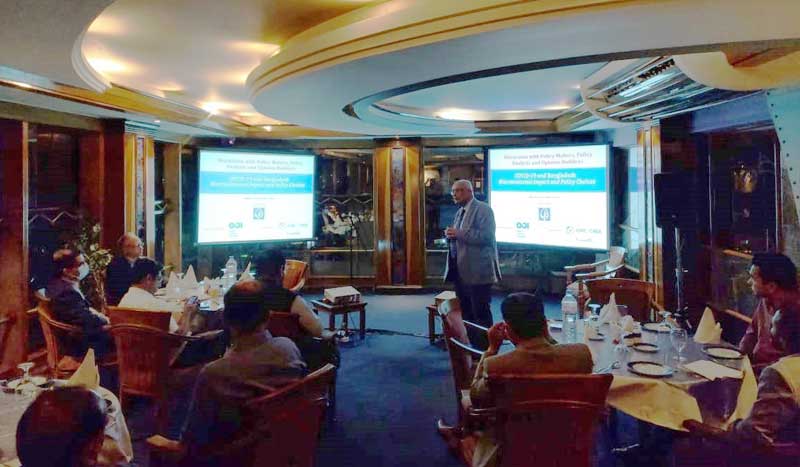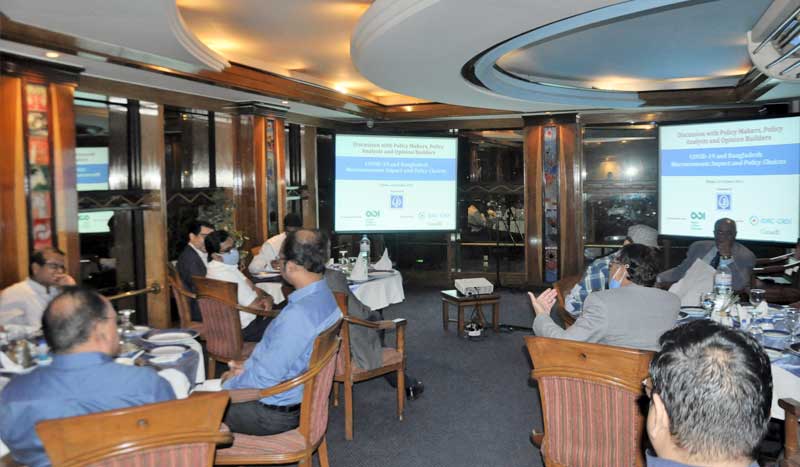
Centre for Policy Dialogue (CPD) organised a discussion with policymakers on issues related to public policy interventions in the pandemic period in Bangladesh, based on a CPD study titled “COVID-19 and Bangladesh Macroeconomic Impact and Policy Choices”, prepared under a programme in association with the Overseas Development Institute (ODI), London and supported by the International Development Research Centre (IDRC), Ottawa. The discussion was held on Sunday, 24 October 2021, at the Bukhara Restaurant, Dhaka. It was attended by Members of Parliament, senior government officials, business leaders and editors of leading newspapers.

Dr Debapriya Bhattacharya, Distinguished Fellow, CPD and the study team leader, presented the research findings. The participants expressed their desire for more such initiatives. Dr Debapriya reviewed the impact of the pandemic on macroeconomic correlates, the magnitude and nature of public policy response, and the implications of policy choices for disadvantaged people, women, youth and climate affected people. He also shared two policy scenarios derived through a Computable General Equilibrium (CGE) modelling exercise.
The participants appreciated the rigorous ex-ante analysis of macroeconomic policy options and stated that such studies are helpful for them to understand it. The discussion brought forward important issues regarding macroeconomic policy during the pandemic, which are highlighted below:
- According to ‘Rules of Business’ of the Government of Bangladesh, only four Members of the Parliamentary Standing Committees can effectively discuss budgetary and fiscal issues. Regrettably, they are not paying adequate attention to the fiscal policy options during the pandemic.
- There should be room for additional resources in the government’s budget, which allows the government to allocate the resources to the desired and required sector.
- Data constraint was a major issue, particularly real-time and disaggregated data to design, implement and monitor effective fiscal policy measures during the pandemic. Policy options as presented in the CGE model cannot be mutually exclusive. Government expenditure needs to be expanded towards critical sectors such as health and education as well.
- There should be more linkages to knowledge actors by formulating partnerships with think tanks such as the CPD to strengthen the capacities of policy interlocutors.
The discussion was also attended by research author of this study, Mr Towfiqul Islam Khan, Senior Research Fellow, CPD.

